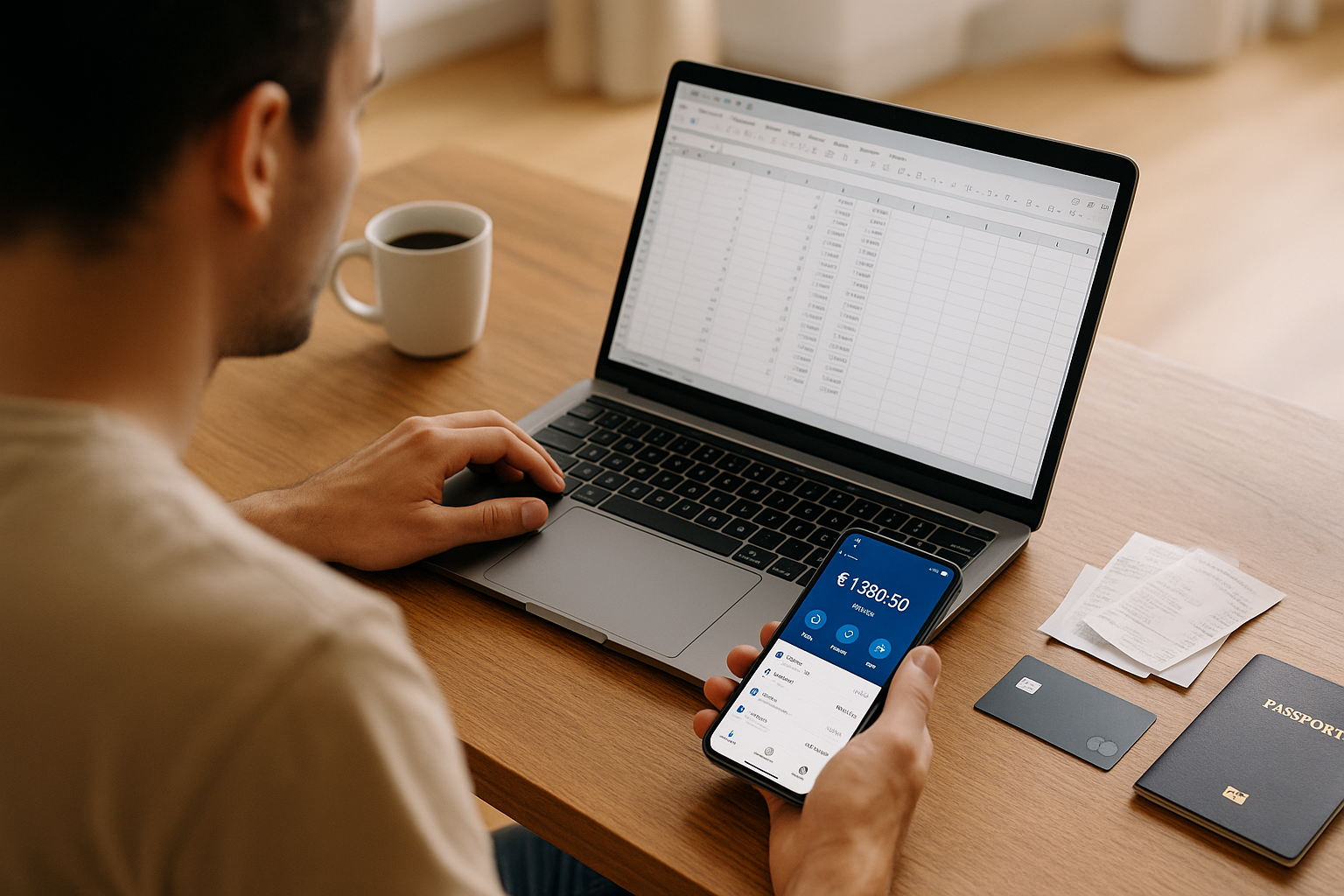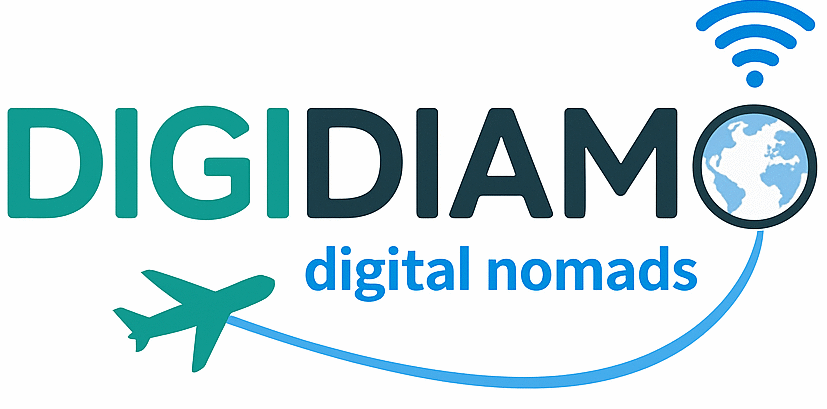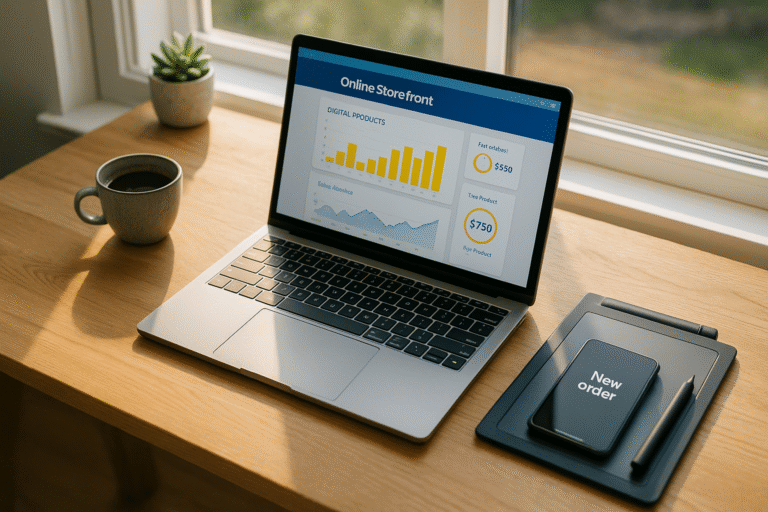Digital nomad taxes and finances: stay compliant in 2025
Money moves fast when borders blur. I learned that lesson on my first long haul trip from Casablanca to Medellín. Currency shifts, banking fees, and tax rules threatened to drain more than rent. This guide unpacks the main pillars of financial management for a roaming career. If you still need the big picture of gear, visas, and daily rhythm my comprehensive digital nomad guide ties it all together.

why planning matters
A nomad who tracks expenses and tax duties sleeps better than the one who opens statements in fear. Clear numbers reveal your runway. They also help you pass embassy income checks when applying for long stay permits. Treat cash flow like a travel companion: respect it, listen to it, and it will take you far.
choosing the right bank mix
borderless accounts
Services such as Wise and Revolut hold several currencies under one roof. Incoming payments land in dollars then convert to pesos or euros at interbank rates. Fees sit close to 0.4 percent so you keep more of each invoice.
local high interest accounts
Some countries pay five percent or more on local savings. Georgia’s lari rate hit eight percent last year. When you plan to stay six months or longer parking a safety cushion locally offsets exchange risk. Check stability ratings and withdrawal limits before committing.
credit cards with zero foreign fees
Cards like Chase Sapphire Preferred or N26 Metal refund ATM charges and waive FX margins. They also add rental car insurance which saves buying extra coverage on arrival.
managing multiple currencies
Exchange rates swing daily. Locking a rate feels like guessing weather a month ahead. Instead:
- invoice in one strong currency (usd or eur)
- keep a three month living buffer in the currency of your next base
- use a multi-currency wallet for short term spends
Apps such as CurrencyFair let you set target rates and auto exchange once the market hits your number.
budgeting on the road
Fixed costs shrink when you own little, yet variable expenses can spike with flights and cowork passes. I split my budget into four envelopes:
- accommodation
- mobility (flights, trains, fuel)
- workspace and gear
- food, fun, fitness
Allocating in percentages rather than amounts adapts to each country’s price level. My rule keeps rent under 35 percent of net income. When rent climbs past that mark I move on or find a roommate.
understanding tax residency
the 183 day yardstick
Most jurisdictions claim you as a tax resident if you spend 183 days or more within a calendar year. Track nights in a simple spreadsheet or an app like NomadList’s planner. Mistakes here invite back taxes plus penalties.
centre of vital interests
Some countries count family ties, property, and main client base instead of nights slept. If your business invoices one main country and you bank there, tax authorities may still want a slice even if you stay away longer than six months.
dual taxation agreements
Double tax treaties prevent paying income tax twice on the same money. Read the agreement between your passport country and current host. Often the treaty lets you credit tax paid abroad against home liability. Keep certificates of tax paid for proof.
popular digital nomad visas and taxes
| country | visa length | income proof | local tax rules |
|---|---|---|---|
| portugal | 12 months | 3 040 eur/mo | taxed under non habitual resident rate (20%) |
| georgia | 12 months | none | 1% on turnover under 155 k usd (small biz) |
| costa rica | 12 months | 3 000 usd/mo | exempt on foreign income, local source taxed |
| estonia | 12 months | 4 500 eur/mo | taxed only after 183 days |
| dubai uae | 12 months | 5 000 usd/mo | no personal income tax |
Rules shift, so recheck embassy pages a month before you file paperwork.
bookkeeping tools that travel well
- wave keeps double entry ledgers free and exports csv for accountants
- harvest tracks billable hours in local time zones then converts totals to client currency
- expensify scans receipts, tags vat amounts, and syncs with google drive backups
Run monthly reconciliations even during high season travel. Unexpected airfare refunds and cash tips distort real profit if left untracked.
invoicing and payment gateways
Clients span continents. Offer at least two payment methods:
- stripe for card payments
- wise account details for local transfers
Set due dates at seven or fourteen days to preserve cash flow. Auto reminders reduce awkward follow ups.
retirement and investment
Nomads often skip employer pensions. Create your own system early.
diversified index funds
Platforms like interactive brokers let you buy etfs across regions. Choose accumulating funds to grow tax deferred until withdrawal.
real estate fractional shares
Services such as reit index funds or platforms like Fundrise give exposure without landlording headaches. Liquidity windows vary, so treat as medium term holds.
crypto cautiously
Holding a small percent in bitcoin or ethereum provides long range upside and borderless access. Store keys in hardware wallets kept separate from day bag. Volatility means never stake rent money.
healthcare and insurance
Medical bills ruin plans faster than tax audits. Combine:
- travel health insurance for emergencies
- local clinic plans when staying six months or more
- telemedicine subscription like SafetyWing’s Remote Doctor for routine checks
Factor premiums into the budget envelope rather than treating them as extras.
securing documents
Scan passports, visas, and tax forms to encrypted cloud storage. I use proton drive with two factor authentication. Keep a paper photocopy in a different bag pocket. When a border guard asks for onward tickets or bank statements, offline copies speed the queue.
case study: maria the marketer
Maria left Spain two years ago to freelance in growth marketing. She earns 6 000 eur a month from three saas clients paid in usd. She lives in Tbilisi eight months per year and spends the rest in Valencia with family.
- She registered a Georgian individual entrepreneur status. Profit under 155 000 usd is taxed at 1 percent.
- Double tax treaty between Spain and Georgia credits her Georgian tax against Spanish liability.
- Wise multi currency account collects usd then converts to eur only when the rate tops 1.1.
- Rent sits at 400 usd so total living costs average 1 200 usd. She invests half her surplus in a world index etf each month.
Maria shows that smart structure lets you keep more of each invoice while remaining fully compliant.
common pitfalls
- ignoring small freelance gigs and then missing receipts for deductions
- banking only in one country then facing frozen cards when fraud alerts trigger abroad
- assuming crypto gains are invisible to tax agencies major exchanges share data
- letting health insurance lapse between visa runs
Address these early and stress levels drop.
building a resilient financial routine
- daily: record expenses and check exchange rates
- weekly: reconcile bank feeds inside bookkeeping app
- monthly: set aside tax percentage into a separate account
- quarterly: review goals and adjust investment split
- yearly: download bank and payment gateway statements for archives
Consistency beats complex hacks.
conclusion
Mastering taxes and money flow keeps your passport stamped and your savings growing. Stack the right bank accounts, track days for residency tests, and store clean records. When you feel ready to map the full leap from office desk to runway gate my step by step roadmap for becoming a digital nomad will guide you through gear prep, mindset shifts, and departure checklists so your finances and confidence take off together.






